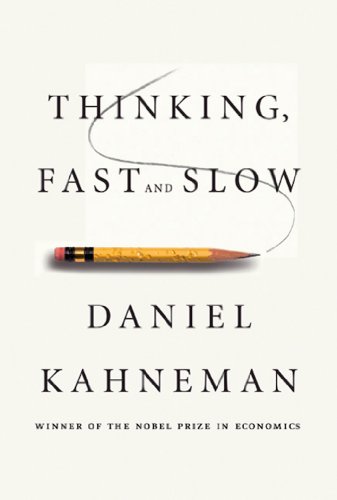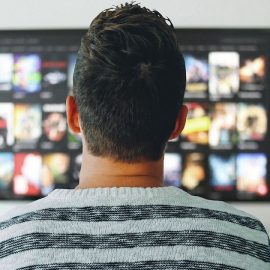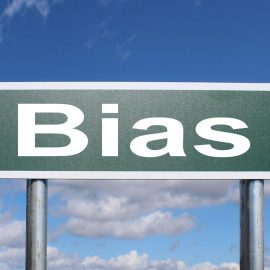

This article is an excerpt from the Shortform summary of "Thinking, Fast and Slow" by Daniel Kahneman. Shortform has the world's best summaries of books you should be reading.
Like this article? Sign up for a free trial here .
What is hindsight bias? How does it work, and how can you avoid it?
Hindsight bias is the tendency to believe you have predicted events or outcomes that were unpredictable. Hindsight bias is a problem because it inflates our confidence about predicting the future.
We’ll look at hindsight bias examples that make the above definition clearer. Learn why the hindsight bias in psychology is an issue and how to overcome it.
What Is Hindsight Bias?
Once we know the outcome of an event, we connect the dots in the past that make the outcome seem inevitable and predictable.
Insidiously, you don’t remember how uncertain you were in the past—once the outcome is revealed, you believe your past self was much more certain than you actually were! This is hindsight bias. It might even be difficult to believe you ever felt differently. In other words, “I knew it all along.” You rewrite the history of your mind.
Hindsight Bias Examples
- Imagine all the people who believe they foresaw the 2000 dotcom bubble bursting or the 2008 financial crisis happening.
- Professional forecasters (eg experts who show up on talk shows) perform no better than chance in predicting events. This might also be because they’re hired for their charisma and vocalness, not accuracy.
If we are certain that our past selves were amazing predictors of the future, we believe our present selves to be no worse.
When we construct satisfying stories about the world, we vastly overestimate how much we understand about the past, present, and future.
The general principle of hindsight bias is this: we desire a coherent story of the world. This comforts us in a world that may be largely random. If it’s a good story, you believe it.
Insidiously, the fewer data points you receive, the more coherent the story you can form. You often don’t notice how little information you actually have (or had before the outcome was revealed) and don’t wonder about what is missing. You focus on the data you have, and you don’t imagine all the events that failed to happen (the nonevents). You ignore your ignorance.
And even if you’re aware of the hindsight bias, you are nowhere near immune to it. Even if you’re told that these biases exist, you often exempt yourself for being smart enough to avoid them.
The ultimate test of an explanation is whether it can predict future events accurately. This is the guideline by which you should assess the merits of your beliefs. This is the way to avoid hindsight bias.
Why Are We So Vulnerable to Bias?
Even when presented with data of your poor predictions, you do not tend to adjust your confidence in your predictions. You forge on ahead, confident as always, discarding the news.
Here are many reasons it’s so difficult to believe randomness is the primary factor in your outcomes, and that your skill is worse than you think. These are just a few of the reasons you fall victim to biases like the hindsight bias:
- Pride and ego are at stake.
- The more famous the forecaster, the more overconfident and flamboyant the predictions.
- Experts resist admitting they’re wrong, instead giving excuses: they were wrong only in timing; they would have been right, but an unforeseeable event had intervened; or they were wrong, but for the right reasons.
- You take deliberate, skillful steps to guide the outcome. By producing a lot of motion, you think that you can’t be wrong.
- Stock analysts pore over financial statements and build models. This requires lots of training and makes stock picking seem more rigorous. But this doesn’t answer the real, more difficult question – is the information already priced into the stock?
- Managers focus on the strength of their strategy and how good their company seems, discounting what their competitors are doing and market changes (“competition neglect”).
- Your experience shows many instances where your predictions came true —partially because those are most available to you, and you discount your mistakes.
- You focus on the causal role of skill and neglect the role of luck – the illusion of control.
- You don’t know what you don’t know. You aren’t aware of most of the factors that influence the final outcome, focusing on only the patterns that you do see.
- Large monetary incentives are at stake. You are being paid for your skill – if your skill turns out to be irrelevant, you’ll lose your job.
- A survey of CFOs asked them to predict the “80% confidence interval” of stock market returns. When you ask someone to make an estimate, the 80% confidence interval is the range between a value the person is 90% sure is too high to be correct and a value the person is 90% sure is too low to be correct. Any result outside this range is considered a “surprise.” The CFOs’ guesses were far too narrow. An accurate 80% confidence interval would only be surprised 20% of the time; but the survey results showed surprises 67% of the time. The real 80% confidence interval was between -10% and +30% returns that year—but any CFO who says this would be criticized as lacking any knowledge.
- It’s a sign of weakness to be unsure. It can have material marketing consequences to customers or investors, or to staff who want more certainty.
- Strong social proof in your community can maintain a belief in skill—if all these other smart people believe skill influences the outcome, then they can’t be wrong.
- Emergencies call for decisive action. In stressful situations, people desire certainty even more. Ambivalent decision making is criticized during these stressful times.
The hindsight bias is insidious, but being aware of it may help you fall victim to it less frequently.
———End of Preview———

Like what you just read? Read the rest of the world's best summary of "Thinking, Fast and Slow" at Shortform . Learn the book's critical concepts in 20 minutes or less .
Here's what you'll find in our full Thinking, Fast and Slow summary :
- Why we get easily fooled when we're stressed and preoccupied
- Why we tend to overestimate the likelihood of good things happening (like the lottery)
- How to protect yourself from making bad decisions and from scam artists






